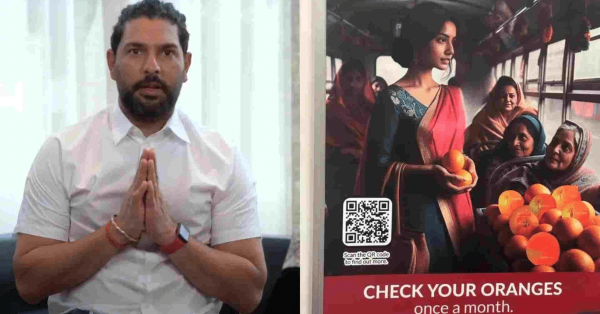Marketing Ethics in Focus: Lessons from the Delhi Metro Breast Cancer Campaign Controversy
Marketing is an essential tool for raising awareness about critical health issues like breast cancer. However, as the recent controversy surrounding the Delhi Metro’s advertisement for breast cancer awareness reveals, the line between creative messaging and insensitivity can be perilously thin. This incident emphasizes the importance of ethical considerations in marketing strategies. In this article, […]
Marketing is an essential tool for raising awareness about critical health issues like breast cancer. However, as the recent controversy surrounding the Delhi Metro’s advertisement for breast cancer awareness reveals, the line between creative messaging and insensitivity can be perilously thin. This incident emphasizes the importance of ethical considerations in marketing strategies. In this article, we will explore effective marketing campaign strategies, the ethical implications involved, and the lessons learned from this case.
Understanding the Campaign
The advertisement in question was part of a breast cancer awareness initiative led by the YouWeCan Foundation, founded by cricketer Yuvraj Singh. Aimed at encouraging women to check for breast cancer, the ad featured the phrase “check your oranges” alongside an image of a woman holding oranges. Unfortunately, the wording was perceived as insensitive and trivializing a serious health issue, leading to significant public backlash.
Key Takeaways from the Incident
1. Sensitivity in Messaging
One of the most critical elements in marketing campaigns—especially those addressing sensitive issues like health—is to ensure the messaging is respectful and appropriate. The backlash against the “check your oranges” slogan highlights how language can influence public perception. The choice of metaphor was seen as diminishing the seriousness of breast cancer, demonstrating the need for thoughtful communication.
2. Audience Understanding
Understanding your audience is paramount in any marketing strategy. This includes recognizing their values, beliefs, and sensitivities. The negative response to the advertisement suggests a disconnect between the campaign’s intentions and the audience’s expectations. Marketers must invest time in audience research to ensure that campaigns resonate positively with their target demographic.
3. Feedback Mechanisms
In today’s digital age, feedback can be immediate and widespread. The Delhi Metro Rail Corporation (DMRC) acted quickly to remove the advertisement after receiving criticism. Organizations should establish robust feedback mechanisms that allow for real-time responses to public sentiment. Engaging with audiences through social media can provide valuable insights and help identify potential issues before they escalate.
Developing Ethical Marketing Strategies
1. Establish Clear Guidelines
Organizations should develop and adhere to a set of ethical guidelines for their marketing campaigns. These guidelines should include criteria for language, imagery, and messaging that respect cultural sensitivities and promote inclusivity. By doing so, brands can ensure that their campaigns align with their core values and the expectations of their audience.
2. Collaborate with Experts
In health-related campaigns, collaborating with medical professionals and subject matter experts can lend credibility to the messaging and ensure that it is accurate and respectful. This partnership can also help identify potential pitfalls and areas of concern that marketers might overlook.
3. Test Campaigns Before Launching
Conducting focus groups or surveys prior to launching a campaign can provide invaluable feedback. Testing messaging on a small scale allows marketers to gauge audience reactions and make necessary adjustments. This step can prevent missteps that could lead to public backlash.
4. Emphasize Education Over Shock Value
While attention-grabbing campaigns may generate buzz, they should prioritize education over sensationalism. Marketing strategies focused on informative content are more likely to foster positive engagement. In the case of the breast cancer campaign, using direct and sensitive language about breast health could have been more effective than a metaphor that led to confusion.
The Role of Social Media in Marketing Ethics
Social media plays a significant role in shaping public perception of marketing campaigns. Positive or negative reactions can spread rapidly, impacting brand reputation. Companies should actively monitor social media channels and engage with their audience to address concerns and promote transparency.
1. Proactive Communication
In the event of backlash, organizations should communicate openly with their audience. Acknowledging mistakes, expressing understanding, and taking corrective actions demonstrate accountability and foster trust. The DMRC’s swift removal of the advertisement reflects a proactive approach to addressing public sentiment.
2. Highlighting Positive Contributions
Brands should leverage social media to promote their contributions to social causes. By sharing stories of impact and highlighting partnerships with organizations that focus on health and well-being, companies can enhance their credibility and build positive associations with their campaigns.
Conclusion
The recent controversy surrounding the Delhi Metro breast cancer advertisement serves as a powerful reminder of the importance of ethical considerations in marketing strategies. By prioritizing sensitivity, understanding audience perspectives, and implementing robust feedback mechanisms, organizations can create campaigns that resonate positively and effectively address critical issues.
As marketers, we have a responsibility to craft messages that uplift and educate, particularly on matters as serious as health. Ethical marketing is not just a legal obligation; it is a moral imperative that shapes public perception and brand loyalty. By learning from past mistakes, we can pave the way for more thoughtful and impactful marketing strategies in the future.
Call to Action
As we strive for better marketing practices, consider how your organization can prioritize ethics and audience understanding in its campaigns. Engage with your audience, seek feedback, and ensure that your messaging reflects the values you stand for. Together, we can create campaigns that inspire change and raise awareness for vital issues.













